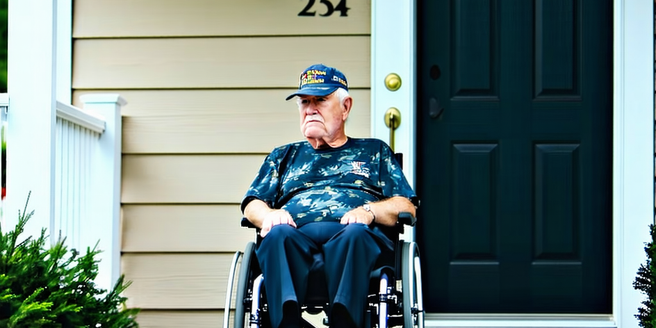Low-income Housing Options For Veterans

Understanding the Housing Needs of Veterans
Veterans have unique housing needs due to factors such as physical disabilities, mental health issues, and financial instability. Understanding these needs is crucial for providing effective support. Many veterans struggle with the transition from military to civilian life, leading to difficulties in finding stable housing. Housing programs must consider accessibility features for those with mobility challenges and create supportive environments for individuals dealing with PTSD. Additionally, affordable housing solutions should address the needs of veterans who may lack steady employment or suffer from mental health issues, offering not just housing, but comprehensive support services like counseling and job placement. It’s important that stakeholders, from policymakers to community organizations, work together to understand and address the multifaceted housing challenges veterans face to provide comprehensive solutions.
Government Programs Supporting Veterans
Government programs play a vital role in supporting veterans’ housing needs by offering various assistance measures. The Department of Veterans Affairs (VA) provides special loan programs that make home purchasing more accessible for veterans, often with favorable terms compared to conventional loans. The HUD-VASH program combines Housing and Urban Development (HUD) financial resources with VA support services to provide rental assistance, helping homeless veterans transition into permanent housing. These programs are designed to address affordability and accessibility. Enhancements like these can significantly reduce financial burdens and provide stability. For veterans facing homelessness, these programs offer critical support that can help them secure and maintain housing. It’s essential for eligible veterans to be aware of these resources and understand how to access them, thereby ensuring they benefit from the programs designed to support their transition back into civilian life.
Non-Profit Organizations and Their Role
Non-profit organizations are instrumental in supporting veterans by addressing housing deficiencies beyond government capabilities. They often provide emergency housing, long-term rental assistance, and case management tailored to each veteran’s specific needs. Many organizations focus on creating supportive communities where veterans can access mental health services, vocational training, and peer support. Charitable groups like Habitat for Humanity and Homes for Our Troops specifically focus on building and modifying homes to accommodate veterans with disabilities, ensuring accessibility and functionality. By fostering partnerships with local businesses and leveraging volunteer networks, non-profits extend their reach and impact, offering veterans more comprehensive support systems. Their agile structure allows them to fill gaps left by larger initiatives, providing customized solutions that cater to the individual and community needs of veterans seeking stable housing solutions.
Affordable Rental Housing Developments
Affordable rental housing developments are crucial for veterans, providing stability and affordability. These developments often collaborate with government programs and non-profits to offer below-market rent options. They may include community support services such as job training, mental health counseling, and peer networking opportunities, which are essential for veterans adjusting to civilian life. Many developments incorporate universal design features, making them accessible to veterans with disabilities. Location is often selected to ensure proximity to essential services and veteran centers. Through either new constructions or transformations of existing structures, these developments address the high demand for affordable housing. By fostering these community-focused environments, developers aim to create supportive, inclusive living spaces that promote independence and improve the overall quality of life for veterans while ensuring sustainability and long-term affordability.
Homeownership Assistance for Veterans
Homeownership offers stability and an investment opportunity for veterans. Programs like the VA Home Loan Guaranty help reduce the financial barriers to homeownership by offering no-down-payment loans and competitive interest rates. Additionally, state and local housing agencies often provide financial education, grants, and down payment assistance. These programs are designed to support veterans in buying homes that meet their unique needs, such as accessibility features for those with disabilities. Education programs empower veterans with the knowledge to make informed decisions about financing and maintaining a home. Owning a home not only provides physical security but also enhances emotional well-being by giving veterans a sense of belonging and an opportunity to be part of a community. These initiatives collectively work to make homeownership a realistic and accessible option for veterans pursuing long-term housing stability.
Navigating the Application Process for Housing
Navigating the housing application process can be daunting for veterans due to the complexity of eligibility criteria and documentation requirements. Effective navigation begins with veterans identifying suitable programs that align with their needs, whether it’s rental assistance, home loans, or transitional housing. They should leverage veteran service officers and housing counselors who can provide guidance and advocacy throughout the process. Understanding eligibility requirements and preparing necessary documentation in advance can smooth the application process. Many programs offer application checklist tools and workshops to aid veterans. It is crucial to ensure all provided information is accurate and complete to reduce processing delays. By breaking down the process into manageable steps and seeking available support, veterans can successfully navigate their housing options, ultimately accessing the stable housing solutions essential for their post-service lives.